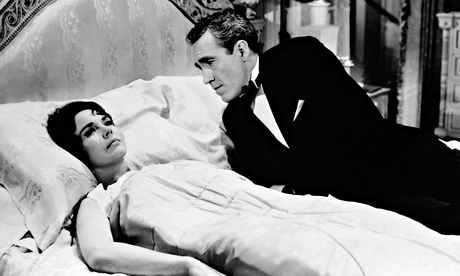
It might seem unreasonable to complain about the names authors choose for their characters – it's their choice after all. But some writers could clearly do with a little help.
Take Swiss author Joël Dicker's international bestseller The Truth About the Harry Quebert Affair. His policeman is called Sergeant Perry Gahalowood – plainly a name made up by a non-native who thinks it sounds American. As this thriller has literary pretensions, perhaps it is a tip of the hat to Louis-Ferdinand Celine, who made up the totally-wrong name O'Collogham for a British character in his London Bridge.
Daytime TV watchers who have just finished catching up on the 1974 series of The Pallisers are left with the same burning question which has confronted readers of the books. Why on earth did Anthony Trollope give a serious, formal and pompous man the wholly suitable name of Plantaganet Palliser, but then tell us his friends call him Planty Pall?
It's obviously a really terrible idea to give your characters names that are normal words in their own right, tripping up the reader time after time. We might be able to live with Will or Mark, but in Gillian Flynn's 2012 bestseller Gone Girl, there is a character called Go (short for Margo) and that leads to such infelicities as these:
Sharon turned to Go.
They will go after Go.
Go stayed.
Go, an expert panel of one.
Go said "Go home."
I have tried really hard to believe there is some metaphysical plot reason for calling her that – at one point board games are mentioned, and I hoped they were going to Advance to Go – but no. There is no excuse.
Guillermo Martinez is guilty of something similar in The Oxford Murders, where one of the major characters is called Arthur Seldom. So: "Seldom smiled", "he asked Seldom", "Seldom opened one of the doors" …
There's a whole host of related problems when we read literature in translation, though clearly the authors aren't to blame. Think of all the patronymics in Russian novels, and the fact that Sasha sounds (to us) nothing like a diminutive for Alexander. There's an intriguing 2003 Thomas Keneally novel set in an unnamed Middle Eastern country – it has the uncompromising title of The Tyrant's Novel, and is generally agreed to be about Saddam Hussein's Iraq. But all the characters have very British names such as Douglas, Carter, Kennedy and McBrien. Is Kenneally making a point about universality, or just sparing the reader the trouble of navigating unfamiliar Arabic names?
Some writers seem to be deliberately obstructive: In Graham Greene's novella The Third Man, one of the main male tough-guy characters is called Rollo Martins. This is bad enough, but for the film Greene reluctantly changed his first name to Holly, which is just plain wrong. Michael Chabon may be a literary star, but what possessed him to have a woman called Phlox in Mysteries of Pittsburgh? Ugliest name ever.
Some unlucky authors picked names that have been overtaken by time – Anthea from E Nesbit's 1902 Five Children and It has the nickname Panty (she could marry Planty Pall perhaps), and there are awful scenes where her baby brother has lines such as "Wants my Panty" and "Me love Panty". And what can you possibly say about the unfortunate Titty in Arthur Ransome's Swallows and Amazons?
When Charlotte Brontë picked the name Shirley for the eponymous heroine of her 1849 novel it may have been unusual, but it was definitely male. Even though it's possible Shirley was based on her sister Emily, Brontë saw her character as having very masculine qualities. These days the name seems very feminine, a shift in which Bronte's novel may have played some part …
In the first book of Ford Madox Ford's Parade's End tetralogy, the 1924 Some Do Not, Sylvia's maid is called Hullo Central throughout. This is apparently because "she's got a tinny voice like a telephone". In another book, this might be an attempt to make us think badly of Sylvia, but as she is completely unredeemed – nothing could make you think worse of her – depersonalising the maid is a tiny crime. So it seems pointless to have sentences like this one:
She rang the bell and bade Hullo Central sweep the plateful from the carpet.
Children's authors need to be particularly careful. Everyone knows the horror of pronouncing a word wrongly that you have only seen written down before. How much worse it is for keen child readers when characters have hard-to-pronounce names, exposing their young fans to the ridicule of their peers. Think of Hermione in the days before Harry Potter reached the silver screen, or Lemony Snicket's pesky Baudelaires.
There's no getting away from the fact that names change over time. Eustace and Hilda in LP Hartley's trilogy aren't supposed to sound so old-fashioned. The names Dora and Noel in Iris Murdoch's The Bell no longer suggest dashing young people. And one of my correspondents suggests firmly that Dolly Wilcox from EM Forster's Howard's End sounds like a porn star. You could imagine her pairing up with Dick Diver from F Scott Fitzgerald's Tender is the Night. But that's all a matter of taste. Which names do you find misleading, outdated or just plain annoying?

